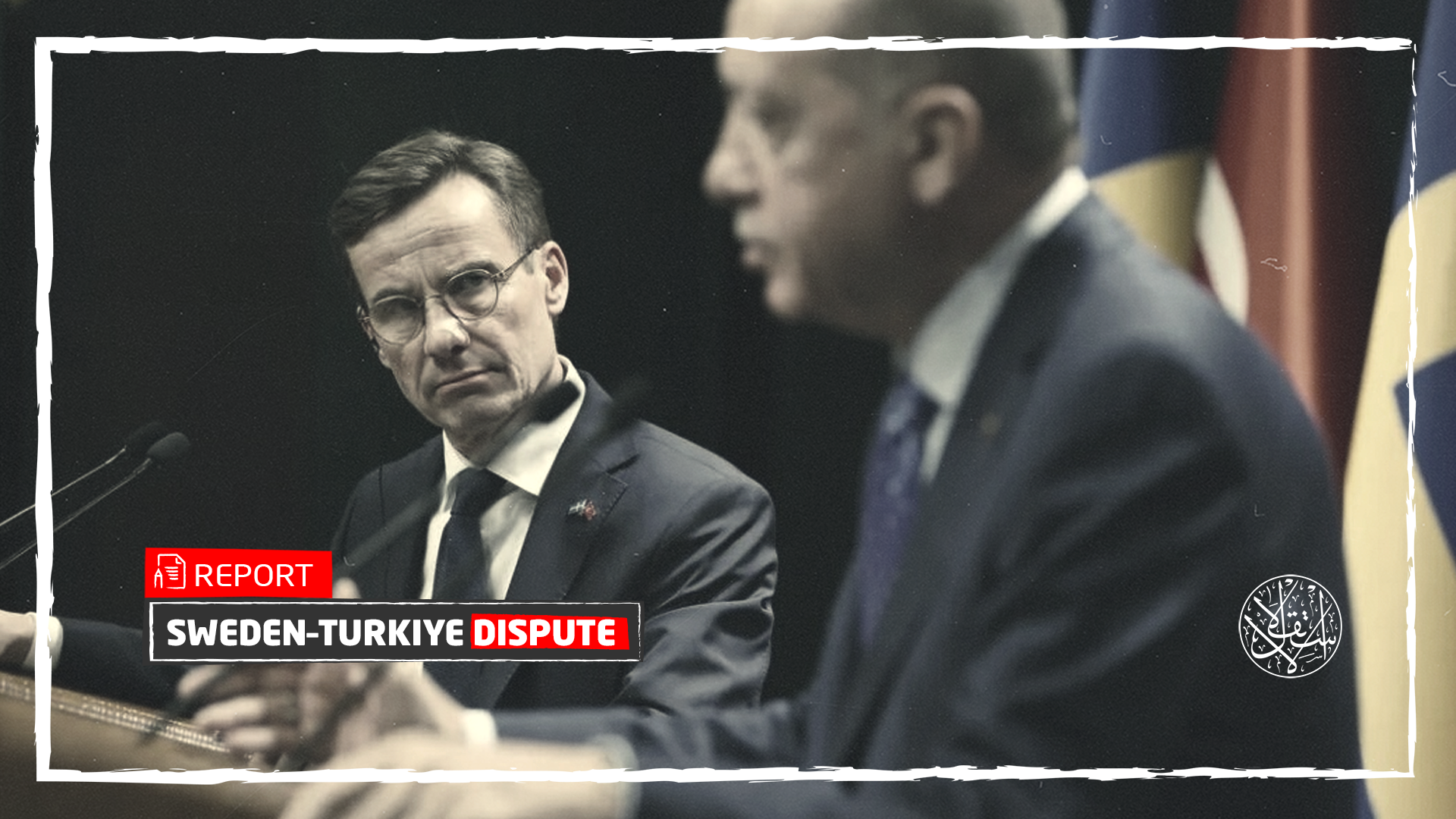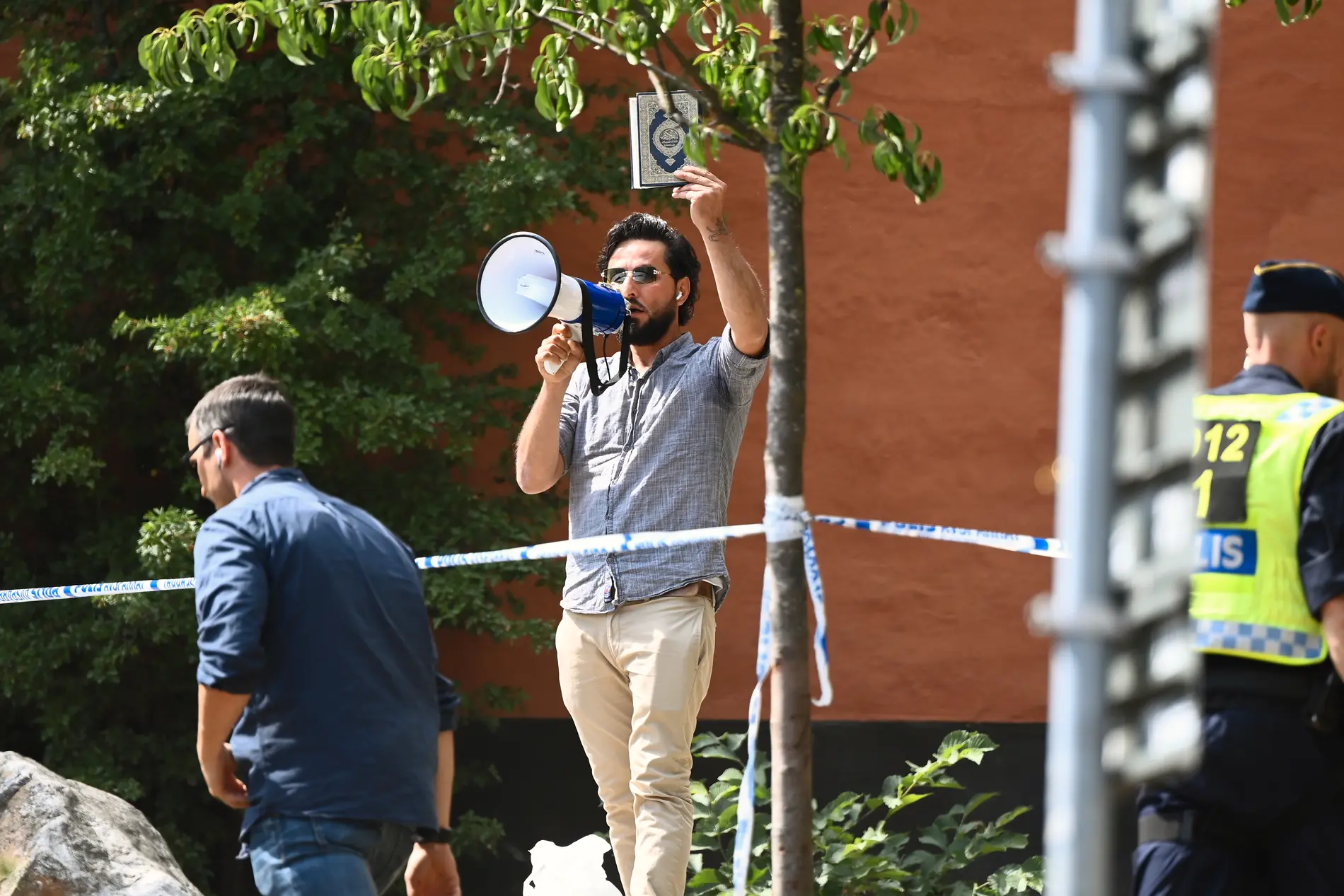Why is Turkiye Still Against Sweden Joining NATO?

The Swedish government is considering criminalizing the burning of holy books after an Iraqi migrant burned a copy of the Quran in front of a Stockholm mosque last week, causing outrage in the Muslim world.
Swedish Justice Minister Gunnar Strommer said that the recent burning of a copy of the Quran has harmed Sweden’s internal security,” according to the newspaper Aftonbladet.
Strommer said the latest burning of a copy of the Quran was now prompting the government to take action, and the legal situation was being analyzed.
“Among other things, consideration is being given to whether there is a need to make changes to the law—which has so far given the green light to burn the Quran.
“We have to ask ourselves if the current law is good or whether there is reason to reconsider it in some respects,” Strommer said.
“It is clear that we have to analyze the legal situation in light of what happened,” the Swedish minister added.
“We have seen arrests in Sweden on suspicion of preparing terrorist crimes, and there have been arrests in Germany on suspicion of preparing terrorist crimes against Sweden in light of this. “We can also see that last week’s Quran burning generated threats to our internal security.”
According to the Swedish newspaper, the burning of a copy of the Quran harmed Sweden’s chances of joining NATO in light of Turkiye’s important role in approving the request.
International Consequences
The Quran burnings in Sweden have had international consequences, like the Swedish embassy storming in Baghdad in light of the Quran burning incident in Stockholm.
The burnings may also make it more difficult for Sweden to join NATO because Turkiye, which has not yet approved the Swedish NATO application, is strongly critical of allowing the burnings.
The government is now analyzing the situation and considering whether the ordinance needs to be changed.
Strommer said that Sweden has seen arrests for suspected preparation for terrorist crimes, as there have been arrests in Germany for suspected preparation for terrorist crimes against Sweden in light of this.
“We can also see that the Quran burning that happened last week has generated threats to our internal security,” he said.
The issue of granting permission for Quran burnings, in accordance with the Ordinance Act, has been tried in several court instances.
The result of the court trials has been that the Police Authority cannot deny Quran burning with reference to a general threat.
According to Gunnar Strommer, the judges and the use of the rules of the Public Order Act are now being analyzed.
He mentioned that it is clear that Sweden has to analyze the legal situation in light of the spring’s events and those judgments. “We have to ask ourselves whether the current order is good or whether there is reason to reconsider it in some respect,” he added.
Fredrik Bjorkman, a Swedish political reporter, said that the Minister of Justice does not want to say that the government actually wants to change the ordinance, he sticks to saying that the government is analyzing the situation.
“So far, no investigation, which could be the basis for a change in the law, has been appointed, and no directives have been drawn up either,” Bjorkman said.
Bjorkman asked the minister: “Why not order an investigation so that you have a leeway to act by changing the law, if that’s what you want?”

NATO Chances
As NATO leaders prepare to meet in Lithuania later this month, Sweden faces a diplomatic challenge from Turkiye, a key ally that has blocked its bid to join the alliance over terrorism and human rights issues.
Turkiye has accused Sweden and Finland, another aspiring NATO member, of supporting or failing to cooperate against groups that Ankara considers terrorist threats, such as the Kurdish militants and the followers of Fethullah Gulen, a cleric blamed for a failed coup in 2016.
Turkiye has also protested against the two countries’ restrictions on arms sales to it because of its military intervention in Syria.
Last year, under NATO’s mediation, the three countries signed a memorandum of understanding in Madrid, in which Sweden and Finland agreed to work more closely with Turkiye on counterterrorism and extradition matters, as well as to amend some of their laws to accommodate Ankara’s demands.
Turkiye, in turn, said it would reconsider its stance on their NATO membership after assessing their compliance with the agreement. But the deal soon ran into trouble as Finland and Sweden diverged in their approach to Turkiye.
Ankara proposed to deal with them separately, but they and NATO rejected the idea. Eventually, Turkiye relented and accepted Finland’s membership in March, while postponing a decision on Sweden.
This move was seen as a gesture of goodwill and a sign of Turkiye’s support for NATO’s expansion. The Swedish case seemed to improve in recent months, as Stockholm cooperated more with Ankara and extradited one of its fugitives, as well as prevented some attempts to burn copies of the Quran, which had sparked outrage among Muslims.
After Turkiye’s latest elections, some observers expected Ankara to soften its position on Sweden in light of these developments and further commitments from Stockholm, which also passed some legal reforms.
But a ruling by Sweden’s Supreme Administrative Court that allowed the burning of religious books as an expression of free speech reignited the tensions between the two countries.
The situation worsened when a far-right group burned a copy of the Quran in front of a mosque in Malmo last week, triggering violent protests and condemnation from Turkiye.
Among the many Turkish officials who denounced the incident, President Recep Tayyip Erdogan was the most vocal, saying that his country would “sooner or later teach Western arrogance symbols that insulting Muslims is not freedom of thought.”
He vowed to respond “in the strongest possible way until terrorist organizations and enemies of Islam are fought firmly.” With only days left before the NATO summit, the Quran burning incident has complicated Turkiye’s calculus with Sweden, leaving little time for a resolution.
Pressuring Ankara
Speaking to Al-Estiklal, political researcher Osama Fouad said that Stockholm is hoping that NATO and the United States will pressure Ankara to agree to its membership before the summit, especially after a four-way meeting that will include both countries, Finland and NATO, according to the mechanism established after the Madrid memorandum.
“Sweden’s bid to join NATO faces a hurdle from Turkiye, which has not given its consent to the Nordic country’s accession before a summit scheduled for later this year,” Fouad said.
Turkiye, a key NATO ally, has been frustrated by Sweden’s perceived lack of support in its fight against terrorism and its failure to prevent acts of religious intolerance on its soil.
Sweden’s Foreign Minister Tobias Billstrom said his country “supports Turkiye against terrorism” and that a new anti-terrorism law passed recently would enhance cooperation with Ankara. He also denounced the Quran burning as “racism, xenophobia and intolerance” that had no place in Sweden.
But Ankara does not seem convinced by Stockholm’s gestures and is unlikely to approve its NATO membership before the summit, according to Fouad.
“The delay could complicate Sweden’s security situation amid rising tensions between Russia and Ukraine and NATO’s desire to strengthen its presence in the region,” Fouad noted.
He said that the episode also exposes Sweden’s lack of political savvy and sensitivity in dealing with hate crimes and religious discrimination at a critical juncture for its foreign policy.









